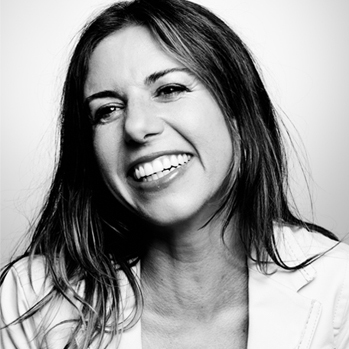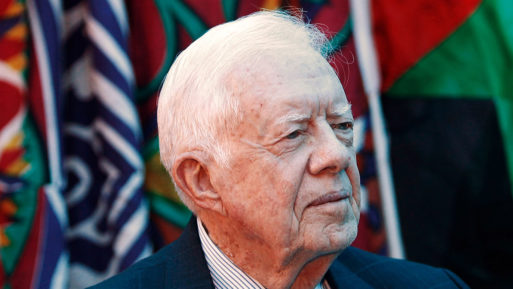Today SevenPonds is speaking with Dr. Laura Delizonna, a clinical psychiatrist, instructor at Stanford University and happiness coach. The coauthor of several books on the value of mindfulness, Dr. Delizonna is a the founder of Choosing Happiness, an ongoing educational project that helps people and organizations “manifest their dreams and attain sustainable happiness.” In this interview, Dr. Laura shares insights drawn from her work with patients in hospice care.

Credit: choosinghappiness.org
Aurora: Can you tell us a little about you and your work, Dr. Laura?
Dr. Laura: I am a clinical psychologist specializing in positive psychology. I teach at Stanford, and do happiness coaching with a specialty in emotional and social intelligence. I work with individuals, coaching one-on-one, and I do workshops for individuals, groups, and companies.
Aurora: What is happiness?
Dr. Laura: The kind of happiness we’re talking about is not elated joy or bliss — that’s an easier happiness to experience in many ways. The fulfilling, deeper happiness we teach is more a sense of serenity as opposed to fleeting moments of joy.
Aurora: What was it like working in hospice?
Dr. Laura: It was wonderful — one of the most inspiring experiences I had as a psychologist. The people I worked with were so authentic and so real. They were willing to talk about what was really important to them…life questions, the meaning of life, their life story. They possessed a sort of “radical honesty.”
In the face of death, people develop a deep inquiry and reflection that is very beautiful. In hospice, I witnessed the profound courage and resiliency that many patients had — not that they were expecting to survive their illness, but a sense of empowerment and gratitude for the reality of life.
Aurora: What do you think of the idea of a bucket list — goals that people set out to achieve by the end of their life?
Dr. Laura: I think it’s great! At end of life, what’s important is having intention and making active choices, and it requires a lot of self-awareness to determine your priorities. What you really want to do is what matters most to you, whatever that might be. Set a priority for what you desire and make that happen.
Aurora: And now for the big question: How does a person remain optimistic when faced with a terminal condition or the loss of a loved one?
Dr. Laura: First, let’s talk a little about optimism. I like to refer to the “Serenity Prayer,” which was popularized by Alcoholics Anonymous, but is attributed to the American theologian Reinhold Niebuhr,
“May I have the courage to change what must be altered, the serenity to accept what cannot be helped, and the insight to know the one from the other.”
So, what optimism means is that we focus on changing the things that are changeable. For example, the fact of a diagnosis or a physical condition is in the past. What we want to focus on is in the present, because that’s something we can change. We can change how we deal with it by creating a solid plan and coping with the emotional impact. Optimism emerges when we cope well.
Optimism is feeling, “I’m doing all I can.” Looking to the serenity prayer, optimism is accepting what cannot be changed. And, like happiness, optimism and serenity are different from bliss.

Facing a cancer diagnosis at the age of 93, former President Jimmy Carter exudes optimism and gratitude
(Credit: etonline.com)
Aurora: Interesting. Can you elaborate a bit more on how that works? How focusing on the present can help us be more optimistic?
What’s important in response to extremely challenging and painful life circumstances is to know something about the mind. We’re wired through evolution to focus on problems — what’s called a negativity bias. Research shows we’re really, really good at finding problems and hanging onto them. Detecting threat has an enormous survival benefit, but it gets in the way of coping with extremely difficult life situations in a healthy, optimistic way. You must actively cope.
When faced with the extremely challenging situations, it’s natural to feel defeated and disempowered. But there are ways to take control. For instance, we are constantly creating stories. The mind loves stories, immediately going to cause and effect. When we are faced with difficult life situations, we must create our own story instead of letting it be written automatically and unconsciously. The more challenging and painful the situation is, the more important it is to write your own story… what I call your “hero story.”
Aurora: What is a hero story?
A hero is someone who faces adversity with great courage and perseverance. Each of us has a hero story; but because of our negativity bias, the mind goes to the defeatist story — telling us that we’ve been a victim of tragic circumstances. Being the author of our own hero story means looking at the heroic act of our lives and acknowledging that we’ve met challenging situations with bravery and grace. Writing these stories down cements them in our minds and helps us feel more empowered and in control, which, in turn, leads to greater optimism and the kind of real happiness we seek.
Aurora: Thank you so much, Dr. Laura!

 What Is Happiness? An Interview with Dr. Laura Delizonna
What Is Happiness? An Interview with Dr. Laura Delizonna


 “Hand to Earth” by Andy Goldsworthy
“Hand to Earth” by Andy Goldsworthy
 Trans Remembrance Project Provides a Community of Grieving
Trans Remembrance Project Provides a Community of Grieving
 Caring for a Dying Loved One? Be Gentle With Yourself.
Caring for a Dying Loved One? Be Gentle With Yourself.














